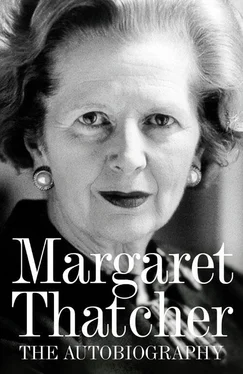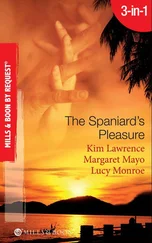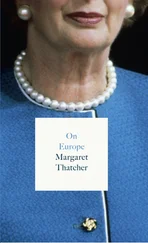It was, however, the coming of the cinema to Grantham which really brightened my life. We were fortunate in having among our customers the Campbell family who owned three cinemas in Grantham. They would sometimes invite me around to their house to play the gramophone, and I got to know their daughter Judy, later to be a successful actress who partnered Noël Coward in his wartime comedy Present Laughter and made famous the song ‘A Nightingale Sang in Berkeley Square’. Because we knew the Campbells, the cinema was more acceptable to my parents than it might otherwise have been. They were content that I should go to ‘good’ films, a classification which fortunately included Fred Astaire and Ginger Rogers musicals, and the films of Alexander Korda. They rarely went with me – though on a Bank Holiday we would go together to the repertory theatre in Nottingham or to one of the big cinemas there – so usually I would be accompanied by friends of my own age. Even then, however, there were limits. Ordinarily there was a new film each week; but since some of these did not sustain enough interest to last six days, another one was shown from Thursday. Some people would go along to the second film, but that was greatly frowned on in our household.
Perhaps that was a fortunate restraint; for I was entranced with the romantic world of Hollywood. For 9d you had a comfortable seat in the darkness while the screen showed first the trailer for forthcoming attractions, then the British Movietone News with its chirpy optimistic commentary, after that a short public service film on a theme like Crime Does Not Pay , and finally the Big Picture. These ran the gamut from imperialistic adventures like The Four Feathers and Drum , to sophisticated comedies like The Women (with every female star in the business), to the four-handkerchief weepies like Barbara Stanwyck in Stella Dallas or Ingrid Bergman in anything. Nor was I entirely neglecting my political education ‘at the pictures’. My views on the French Revolution were gloriously confirmed by Leslie Howard and lovely Merle Oberon in The Scarlet Pimpernel. I saw my father’s emphasis on the importance of standing up for your principles embodied by James Stewart in Mr Smith Goes to Washington. I rejoiced to see Soviet communism laughed out of court when Garbo, a stern Commissar, was seduced by a lady’s hat in Ninotchka.
And my grasp of history was not made more difficult by the fact that William Pitt the Younger was played by Robert Donat and, in Marie Walewska , Napoleon was played by the great French charmer Charles Boyer.
I often reflect how fortunate I was to have been born in 1925 and not twenty years earlier. Until the 1930s, there was no way that a young girl living in a small English provincial town could have had access to this extraordinary range of talent, dramatic form, human emotion, sex appeal, spectacle and style. To a girl born twenty years later these offerings were commonplace and taken much more for granted. Grantham was a small town, but on my visits to the cinema I roamed to the most fabulous realms of the imagination. It gave me the determination to roam in reality one day.
For my parents the reality which mattered was here and now. Yet it was not really a dislike of pleasure which shaped their attitude. They made a very important distinction between mass and self-made entertainment, which is just as valid in the age of constant soap operas and game shows – perhaps more so. They felt that entertainment that demanded something of you was preferable to being a passive spectator. At times I found this irksome, but I also understood the essential point.
When my mother, sister and I went on holiday together, usually to Skegness, there was always the same emphasis on being active, rather than sitting around day-dreaming. We would stay in a self-catering guesthouse, much better value than a hotel, and first thing in the morning I went out with the other children for PT exercises arranged in the public gardens. There was plenty to keep us occupied and, of course, there were buckets and spades and the beach. In the evening we would go to the variety shows and reviews, with comedians, jugglers, acrobats, ‘old tyme’ singers, ventriloquists and lots of audience participation when we joined in singing the latest hit from Henry Hall’s Guest Night. My parents considered that such shows were perfectly acceptable, which in itself showed how attitudes changed: we would never have gone to the variety while Grandmother Stephenson, who lived with us till I was ten, was still alive.
That may make my grandmother sound rather forbidding. Again, not at all. She was a warm presence in the life of myself and my sister. Dressed in the grandmotherly style of those days – long black sateen-beaded dress – she would come up to our bedrooms on warm summer evenings and tell us stories of her life as a young girl. She would also make our flesh creep with old wives’ tales of how earwigs would crawl under your skin and form carbuncles. Her death at the age of eighty-six was the first time I had ever encountered death. As was the custom in those days, I was sent to stay with friends until the funeral was over and my grandmother’s belongings had all been packed away. In fact, life is very much a day-today experience for a child, and I recovered reasonably quickly. But Mother and I went to tend her grave on half-day closing days. I never knew either of my grandfathers, who died before I was born, and I saw Grandmother Roberts only twice, on holidays down to Ringstead in Northamptonshire. She was a bustling, active little old lady who kept a fine garden. I remember particularly that she kept a store of Cox’s orange pippins in an upstairs room from which my sister and I were invited to select the best.
My father was a great bowls player, and he smoked (which was very bad for him because of his weak chest). Otherwise, his leisure and entertainment always seemed to merge into duty. We had no alcohol in the house until he became mayor at the end of the war, and then only sherry and cherry brandy, which for some mysterious reason was considered more respectable than straight brandy, to entertain visitors. (Years of electioneering also later taught me that cherry brandy is very good for the throat.)
Like the other leading businessmen in Grantham, my father was a Rotarian. The Rotary motto, ‘Service Above Self’, was engraved on his heart. He spoke frequently and eloquently at Rotary functions, and we could read his speeches reported at length in the local paper. The Rotary Club was constantly engaged in fund raising for the town’s different charities. My father would be involved in similar activity, not just through the church but as a councillor and in a private capacity. One such event which I used to enjoy was the League of Pity (now NSPCC) Children’s Christmas party, which I would go to in one of the party dresses beautifully made by my mother, to raise money for children who needed help.
Apart from home and church, the other centre of my life was, naturally enough, school. Here too I was very lucky. Huntingtower Road Primary School had a good reputation in the town and by the time I went there I had already been taught simple reading by my parents. Even when I was very young I enjoyed learning. Like all children, I suspect, these days remain vividly immediate for me. I remember a heart-stopping moment at the age of five when I was asked how to pronounce W-R-A-P; I got it right, but I thought ‘They always give me the difficult ones.’ Later, in General Knowledge, I first came across the mystery of ‘proverbs’. I already had a logical and indeed somewhat literal mind – perhaps I have not changed much in this regard – and I was perplexed by the metaphorical element of phrases like ‘Look before you leap’. I thought it would be far better to say ‘Look before you cross’ – a highly practical point given the dangerous road I must traverse on my way to school. And I triumphantly pointed out the contradiction between that proverb and ‘He who hesitates is lost’.
Читать дальше












